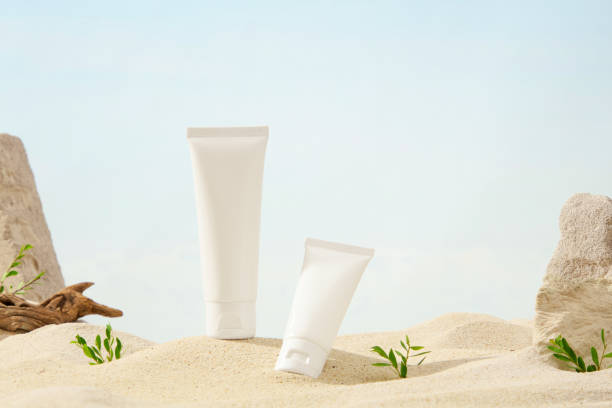
Chemical vs. Mineral Sunscreen: Your Essential Guide
The Essential Guide to Chemical vs. Mineral Sunscreens: Embracing Natural Protection
As the summer months approach, the importance of protecting our skin from the harmful effects of the sun's rays cannot be overstated. While sunscreen is an essential part of any skincare routine, the debate between chemical and mineral sunscreens has been ongoing. In recent years, there has been a growing demand for natural and organic sunscreen options, as consumers become more conscious of the ingredients they expose their skin to.
In this comprehensive guide, we'll delve into the differences between chemical and mineral sunscreens, explore the benefits of natural and organic options, and provide you with the knowledge you need to make an informed decision about the best sunscreen for your skin.
Understanding Chemical Sunscreens
Chemical sunscreens, also known as organic sunscreens, work by absorbing UV radiation and converting it into heat energy, which is then released from the skin. These sunscreens typically contain a combination of active ingredients such as oxybenzone, avobenzone, octinoxate, and octocrylene.

While chemical sunscreens are effective at protecting the skin from UV rays, there are concerns about the potential health risks associated with some of the active ingredients. For example, oxybenzone has been linked to hormone disruption and has been detected in breast milk and urine samples, raising concerns about its safety.
The Benefits of Mineral Sunscreens
Mineral sunscreens, also known as physical sunscreens, work by reflecting and scattering UV radiation away from the skin. These sunscreens typically contain active mineral ingredients such as zinc oxide and titanium dioxide, which form a protective barrier on the skin's surface.
One of the primary benefits of mineral sunscreens is their safety profile. Zinc oxide and titanium dioxide are generally recognized as safe and effective by regulatory bodies such as the FDA and are less likely to cause skin irritation or allergic reactions. Additionally, mineral sunscreens are often recommended for individuals with sensitive skin or those who are prone to skin conditions like rosacea or eczema.
Embracing Natural and Organic Sunscreens
As consumers become more conscious of the ingredients they expose their skin to, the demand for natural and organic sunscreen options has been on the rise. These sunscreens are formulated with plant-based and mineral-derived ingredients, avoiding synthetic chemicals and potentially harmful additives.
Natural and organic sunscreens often rely on mineral active ingredients like zinc oxide and titanium dioxide, combined with nourishing plant-based oils, butters, and extracts. These formulations not only provide broad-spectrum protection against UV rays but also offer additional benefits such as hydration, antioxidant protection, and anti-aging properties.
Popular Natural and Organic Sunscreen Ingredients
- Zinc Oxide: A mineral-based active ingredient that provides broad-spectrum UV protection.
- Titanium Dioxide: Another mineral-based active ingredient that reflects and scatters UV rays.
- Coconut Oil: A nourishing plant-based oil that helps to hydrate and protect the skin.
- Shea Butter: A rich, emollient butter that provides moisture and antioxidant protection.
- Green Tea Extract: A potent antioxidant that helps to neutralize free radicals and protect against environmental stressors.
Choosing the Right Sunscreen for Your Skin
When it comes to choosing the right sunscreen for your skin, there are several factors to consider, including your skin type, sensitivity, and personal preferences.

For individuals with sensitive skin or those who prefer a more natural approach, mineral sunscreens or natural and organic options may be the best choice. These formulations are less likely to cause irritation or allergic reactions and offer additional nourishing benefits for the skin.
However, it's important to note that mineral sunscreens can leave a white cast on the skin, which may be more noticeable on darker skin tones. In these cases, tinted or lightly tinted mineral sunscreens can help to minimize the white cast while still providing effective protection.
Proper Application and Reapplication
Regardless of the type of sunscreen you choose, proper application and reapplication are crucial for ensuring optimal protection against UV rays. Here are some tips for effective sunscreen use:
- Apply a generous amount of sunscreen to all exposed areas of the skin, including often-overlooked areas like the ears, neck, and tops of the feet.
- Reapply sunscreen every two hours, or more frequently if you're swimming or sweating heavily.
- Use a water-resistant or very water-resistant sunscreen if you plan to be in the water or engaging in outdoor activities that may cause excessive sweating.
- Don't forget to apply sunscreen to your lips and the delicate skin around your eyes.
Conclusion
Protecting your skin from the harmful effects of UV radiation is essential for maintaining overall skin health and preventing premature aging and skin damage. While both chemical and mineral sunscreens offer effective protection, the growing demand for natural and organic options has opened up a world of possibilities for those seeking a more gentle and eco-friendly approach to sun protection.
By understanding the differences between chemical and mineral sunscreens, embracing natural and organic formulations, and following proper application and reapplication guidelines, you can enjoy the warmth of the summer sun while keeping your skin safe and radiant.
Remember, your skin is your body's largest organ, and taking care of it should be a top priority. Invest in high-quality, natural and organic sunscreen products, and make sun protection a daily habit – your future self will thank you for it.







